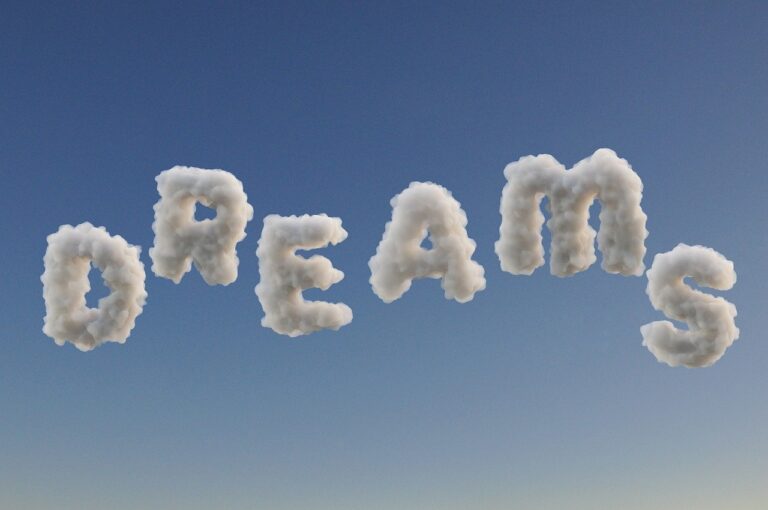Yesterday I woke up sweating, I had a strange dream:
“My father was driving us to a remote bridge, over a river…”
I quickly remembered my friend who was attracted to things about interpretation of dreams, astronomy and horoscopes, and when I told her about my dream she told me that I was afraid of drowning, but I felt it was a general answer very. Who is not afraid of drowning?!
Therefore, I began to wonder if there is a scientific explanation for this.. Why do we dream?
Experiences and hypotheses in the face of dream interpretation:
Previously it was believed that dreams are associated with brain waves and “rapid eye movement REM”, so a person’s eyes move left and right during the sleep cycle, but later it became clear that brain waves do not affect dreams, so the scientists Dr. Crick and Dr. Mitchison tried experiments confirming that dreams are Just brain connections, and they happen to anyone as a routine at the end of the day, so the main driver of the dream is not psychological desire but neurogenesis, but what happens in dreams is completely related to the psychological state.
Therefore, scientific experiments were conducted to study this phenomenon. People volunteered to perform this task. Scientists tested REM during their sleep. Soon, the person enters the REM state. The researchers wake them up and it becomes clear to them that 80% of the volunteers stated that they were dreaming at the moment they were awakened. This confirms that REM is the point at which dreams begin. Concerning the content of the dream, psychoanalysts believed that what happens during the dream are unconscious states resulting from the subconscious mind, and reflect what is inside the subconscious mind of each person. Thus, analyzing the content of the dream helps the individual to get rid of the internal conflicts that he is exposed to.
On the other hand, Allan Hobson, MD, a psychiatrist at Harvard Medical School and director of the Neurophysiology Laboratory at the Massachusetts Center for Mental Health, had a different opinion about the association of dreams with mental state, and emphasized that dreams are reactions Caused by stimulation of the nervous system, the brain interprets them as strange images and other sensory hallucinations, Hobson adds: “Psychoanalysts want people to believe that they can interpret dreams and discover deep meanings that are at the heart of the dreaming process. I just don’t think there is any scientific reason to believe that.”
Let us now discuss how technological development has led to more related theories:
the activation-synthesis hypothesis:
Suppose dreams do not have any intrinsic meaning, but rather they occur due to the random activity of the brain that experiences random life experiences, and transmits them images or observations, and we want to understand these images so we try to turn them into a narrative.
Threat simulation theory:
which assumes that dreams put us in situations that prepare us for real-life situations, and is a kind of evolutionary tool to prepare us for threats.
There is no definitive answer yet:
the experiments did not give any evidence or sufficient signs, the University of Rome (as reported by the Journal of Neuroscience) conducted an experiment that included 65 volunteer students, and they were asked to sleep in intervals, and every period they wake up, they record their dreams in a note.
The experiment ended with results showing that waking up students during the REM phase helps them remember their dreams more, and it was proved that dreams are fully connected to memories and the reason is due to the activity of the frontal lobes to build and retrieve memories during the dream.
Because one study is not enough; The same team of researchers looked at emotional dreams intensely and, using an MRI machine, found that the amygdala (connected to emotion and memory) and the hippocampus (connected to memory) were actively engaged during dreams, which bodes well in suggesting that our dreams actually have something to do with them. with our life experiences.
Again, two studies don’t necessarily prove anything, but scientists seem to be getting a little closer to answering this long-awaited question.
And you, dear reader, what are the strangest dreams that you had and felt related to your reality?


0 Comments